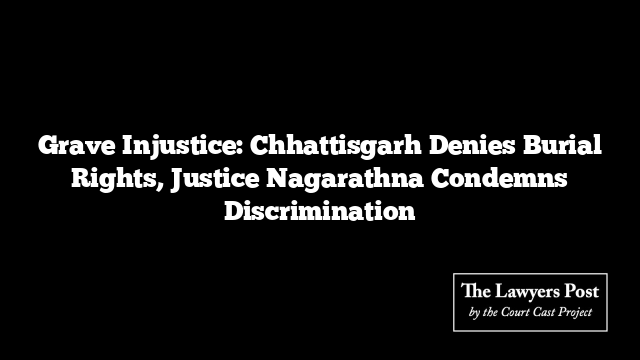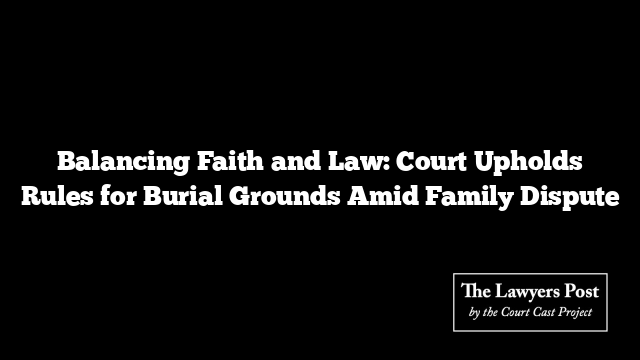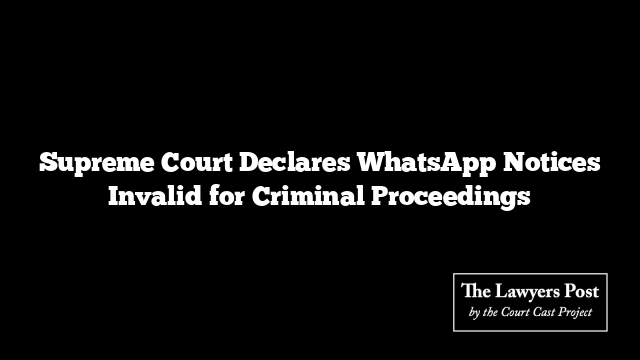In a striking critique of religious discrimination, the Supreme Court examined a contentious plea by a Christian man from Chhattisgarh, seeking to bury his father—a pastor—in their native village of Chindwara. The case revealed a troubling divide, with the court issuing a split verdict on the matter.
Justice B.V. Nagarathna permitted the burial on the family’s private agricultural land, while Justice Satish Chandra Sharma directed the burial to occur at a designated Christian cemetery in Karkapal, approximately 25 kilometers away. The judges ultimately resolved that the burial would proceed in Karkapal, with police protection and logistical support, acknowledging the urgency as the body had been in a mortuary since January 7.
Panchayat’s Neglect and Social Ostracism
Justice Nagarathna rebuked the Gram Panchayat for shirking its duty, citing its failure to ensure a timely burial regardless of religious affiliation. She highlighted that past burials of Christian Mahra community members had occurred in the village graveyard without objections. However, the Panchayat’s recent stance obstructed the appellant’s attempts, resulting in his legal battle.
Her judgment referenced rules mandating burials within 24 hours, underscoring the Panchayat’s abdication of its obligations. The judge noted the Appellant’s family faced social ostracism due to the Panchayat’s discriminatory behavior, which fostered division and hostility in the village.
Secularism Undermined
Justice Nagarathna expressed grave concern over a declaration by the Additional Superintendent of Police (ASP) of Bastar, which prohibited burials of converted Christians in the native village. She called this a blatant betrayal of India’s secular ethos, emphasizing that secularism and fraternity are foundational principles of the Constitution.
“Such an attitude smacks of divisiveness and hostility,” she stated, urging state authorities to uphold unity and harmony. She reminded them of their duty to foster fraternity among citizens, which strengthens the social fabric of a diverse nation.
A Call to Preserve Constitutional Values
Justice Nagarathna concluded by invoking the Supreme Court’s earlier rulings on tolerance and fraternity, urging the nation to adhere to its rich tradition of mutual respect and unity. She condemned the discrimination faced by the appellant’s family as antithetical to India’s constitutional vision.
This case serves as a sobering reminder of the work needed to uphold secularism and ensure equal dignity for all citizens, regardless of faith.





